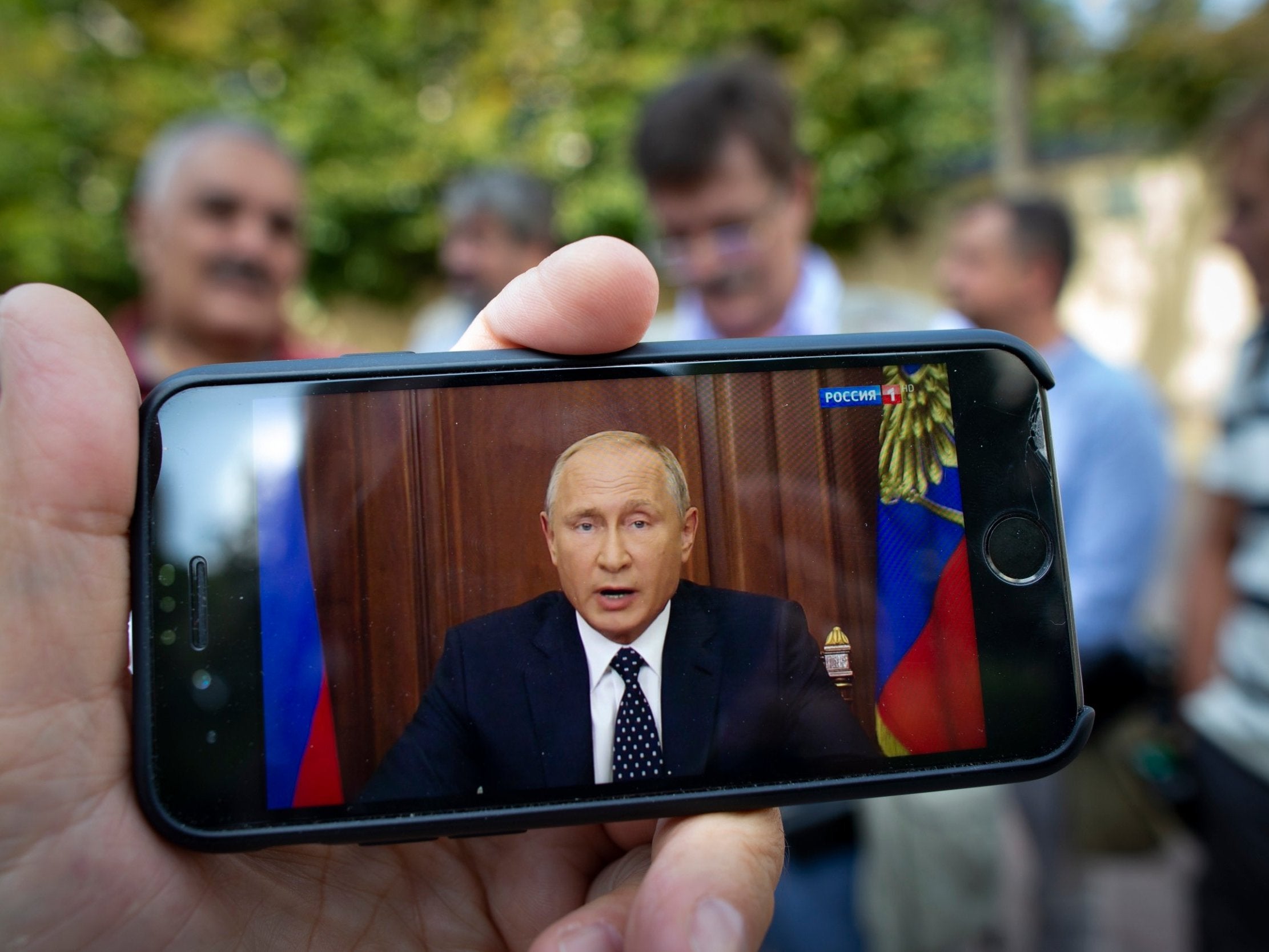Putin offers pension concessions amid public anger and drop in approval ratings
Russian president suggests previous proposal would penalise female workers who are the ‘backbone of the entire home’
Your support helps us to tell the story
From reproductive rights to climate change to Big Tech, The Independent is on the ground when the story is developing. Whether it's investigating the financials of Elon Musk's pro-Trump PAC or producing our latest documentary, 'The A Word', which shines a light on the American women fighting for reproductive rights, we know how important it is to parse out the facts from the messaging.
At such a critical moment in US history, we need reporters on the ground. Your donation allows us to keep sending journalists to speak to both sides of the story.
The Independent is trusted by Americans across the entire political spectrum. And unlike many other quality news outlets, we choose not to lock Americans out of our reporting and analysis with paywalls. We believe quality journalism should be available to everyone, paid for by those who can afford it.
Your support makes all the difference.Vladimir Putin used a rare TV address to slightly soften controversial plans to raise the retirement age for millions of Russians amid mounting anger and a drop in his approval ratings to a near five-year low.
The Russian president said the new retirement age for women would be raised to 60 from the current 55, instead of the 63 previously proposed.
However, he offered no concessions to the male working population who, under the plans, will have to work until they are 65.
Mr Putin acknowledged the original offer was “wrong” and suggested it would penalise the female workforce who were the “backbone of the entire home”.
“The retirement age for women should not increase more than for men,” he said. “That wouldn’t do, certainly. This is wrong.
“Our country’s attitude towards women is unique and compassionate.
“We understand that not only do they work, but usually they are the backbone of the entire home, caring for the family, educating the children and taking care of the grandchildren.”
The use of a rare televised address to make the climbdown pointed to the hostility that Mr Putin has faced in the wake of the proposals.
The plans were unveiled on the opening day of Russia’s World Cup, prompting critics to complain that the government was attempting to bury the news amid football-inspired national pride.
Demonstrations followed across Russia although a ban on protests in 11 host cities diluted their impact on the gathered world media.
Leading government critic Alexei Navalny – who was jailed on Monday for 30 days over his involvement in a protest at the beginning of the year – has called for demonstrations to be held on 9 September against the reforms.
Despite a resounding victory in the March presidential election, Mr Putin’s approval ratings have dropped below 70 per cent – the lowest level since the 2014 annexation of Crimea.
In an attempt to win back favour among Russia’s pensioners – among the president’s staunchest supporters, who have seen their incomes rising steadily – Mr Putin suggested senior citizens would keep their entitlement to benefits including tax breaks even before they reach the retirement age.
The plan would, Mr Putin said, ultimately lead to an increase in the pension that individuals received each month of around 6,000 roubles (£70).

The draft law also suggests allowing women who have worked for at least 37 years and men who have worked for 42 years to be eligible for early retirement.
And it would offer new protections for older workers to prevent them being refused a job because of their age.
Russia’s economy has been dogged in recent years by Western sanctions following the annexation of Crimea and a fall in global oil prices.
But the country faces another structural problem: an ageing population.
Around 20 per cent of Russia’s population is aged 65 or over, compared with a worldwide average of just over 10 per cent.
Mr Putin has said Russia’s pension system, which faces a daily bill of 20 billion roubles (£227m), “would crack and eventually collapse” if it was not reformed.
In Russia, the average life expectancy for women is 78 and 67 for men.
Many Russian families, especially in rural areas and small towns, have relied on pensions as an extra income at a time when younger people often struggle to find a stable job.

Join our commenting forum
Join thought-provoking conversations, follow other Independent readers and see their replies
Comments